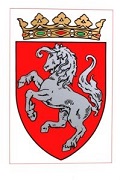|
SHISHKABOB posted:There's probably a way to link roman gladiatorial combat to medieval european chivalric ideas of warfare and their tournaments. Through their purposes of social control. I don't know that you could draw any sort of direct line between the two, to be honest. Sure, both the games and the later tourney served generally as public entertainment and as social relief valves, but the cultural values they represented and came from are quite different. The games were rooted in the Roman virtue of virtus, which advocated a sort of martial ferocity (indeed at times almost to the point of foaming-at-the-mouth aggression) entirely different from that of the later knights, whereas the tourneys, while rowdy violent encounters often just short of pitched battles, were inescapably tied to the Christianity and tripartite society of the Medieval period which was hugely different from the cosmopolitan culture of classical Rome.
|
|
|
|

|
| # ? May 7, 2024 12:20 |
|
You seem to be saying they both fought for some vaguely religious reason. Seems pretty similar to me, in the fundaments of it.
|
|
|
|
doverhog posted:You seem to be saying they both fought for some vaguely religious reason. Seems pretty similar to me, in the fundaments of it. Virtus was a more civic, rather than exclusively religious, virtue in Roman eyes, which is one of the reasons I diverge.
|
|
|
|
My understanding was that Rome viewed militarism as sort of inherently good. Which would be a point of divergence. A Crusader might argue that their war is just because it is the will of God, whereas a Roman might argue that their war is just because being good at war makes you a worthy person. Romans may have worshiped the blood god, is what I'm saying.
|
|
|
|
He was called Mars? Anyway, weren't knights mostly there to fight in wars, not tournaments? Tho I guess over the centuries there was time for both.
|
|
|
|
OwlFancier posted:My understanding was that Rome viewed militarism as sort of inherently good. Which would be a point of divergence. That too. For Roman culture, martial courage and aggression were inexorably linked with proper manliness, and all wrapped up in what virtus represented. As the playwrite Plautus wrote for a female role sometime in the early part of the second century BCE, " I want my man to be cried as a victor in war: that's enough for me. Virtus is the great prize, virtus comes before everything, thatís for sure: liberty, safety, life, property, and parents, homeland and children it guards and keeps safe. Virtus has everything in it: who has virtus has everything good." doverhog posted:He was called Mars? Anyway, weren't knights mostly there to fight in wars, not tournaments? Tho I guess over the centuries there was time for both. War was their primary purpose for sure, but the tourney was increasingly a big part of knightly life in the later part of the Middle Ages.
|
|
|
|
The Church made it increasingly hard to fight wars and if fighting is your justification for your station in life, you'd better believe they are going to find a way to fight.
|
|
|
doverhog posted:He was called Mars? Anyway, weren't knights mostly there to fight in wars, not tournaments? Tho I guess over the centuries there was time for both. Some of them fought in wars, some of them never did (in England at least you paid an extra tax called Scutage to avoid military service, Henry raised a ton of money doing this in the 12th century to pay for mercenaries to actually fight his wars), I mean there were quite a lot of knights!
|
|
|
|
|
A moral system literally built around the idea that war is just if you're winning it.
|
|
|
|
OwlFancier posted:A moral system literally built around the idea that war is just if you're winning it. I'm not sure which of the two you're referring to, but in the Roman Republic at least the main qualifier of whether a general was successful or not was his aggression. Fabius Maximum was criticized and lost his dictatorship for his harassment tactics against Hannibal, because they weren't aggressive enough (despite them actually working), while one of his successors, Terrentius Varro, was praised by the Senate for having restored the fighting spirit of Rome and, "not despairing of the Republic," even though his aggression had gotten his entire army virtually annihilated at Cannae.
|
|
|
|
Was thinking Rome but actually yes you're right. I keep forgetting that they did have those times where they got massacred and complained when people stopped doing that. Was thinking too much of the Triumph. "You won therefore you embody all that is good and proper and also might be Roman Jesus." OwlFancier fucked around with this message at 21:14 on Feb 10, 2017 |
|
|
|
Did soldiers or generals in particular worship Mars? Did they build skull pyramids in his honor, or sacrifice goats, or something?
|
|
|
|
doverhog posted:Did soldiers or generals in particular worship Mars? Did they build skull pyramids in his honor, or sacrifice goats, or something? While Mars wasn't as problematic a deity for the Romans as he had been as Ares for the Greeks before them, he he still had some complicating factors. Even with the Romans' more beneficent viewing of him as the major representatives of war among the gods, he still carried the Greek baggage of being a psychotic moron who routinely botched things and his demi-god children tend to be monstrous and/or insane. He had his cult as did most other major gods, but I wouldn't say that he was that much more adored by Roman military culture than their other war deities. Obviously, individual generals varied considerably in whom they worshiped (if anyone). Sol Invictus in particular was a favorite of generals in the late empire.
|
|
|
doverhog posted:Did soldiers or generals in particular worship Mars? Did they build skull pyramids in his honor, or sacrifice goats, or something? The most-of-the-BC-years start of the new year in Rome happened was the start of March (which was named for him) and coincided with all kinds of festivities including the sacred flame of the city being relit, a general recounting of all the top wars etc. the Romans had won and how cool + excellent they were, people knocking about with sacred shields presumably asking for donations for hosed up war veterans and so on (because that's the kind of thing people with sacred shields would do nowadays so it makes sense in my head at least).
|
|
|
|
|
What were the biggest factors that stopped the Russians from winning the space race?
|
|
|
|
|
doverhog posted:Did soldiers or generals in particular worship Mars? Did they build skull pyramids in his honor, or sacrifice goats, or something? Soldiers in particular worshipped Mithras and created an insanely complicated, hierarchical, militaristic, entirely male-dominated religion around that worship. https://en.m.wikipedia.org/wiki/Mithraism
|
|
|
|
Last page, but I want to say I greatly enjoyed the post about indigenous societies in the American SW.
|
|
|
|
Captain_Maclaine posted:Virtus was a more civic, rather than exclusively religious, virtue in Roman eyes, which is one of the reasons I diverge. what's the difference between the civic polity and the religious one? aquinas probably didn't think there was much of one
|
|
|
|
icantfindaname posted:what's the difference between the civic polity and the religious one? aquinas probably didn't think there was much of one In the Roman example? I'd argue that the former is more "this is the way we doings as proper Romans living up to our civic ideals and traditions of our hallowed ancestors," closer to something like (though clearly distinct from) the latter concept of patriotic identity, whereas the latter would be more "this is what is expected of us by god/the gods." Admittedly it's not a hard and fast distinction and there's plenty of blending of elements the one to the other, but I think it's defined enough to be different from the Medieval idea of the knight as anointed warrior (a conception that only got strong with the Crusades but existed even before them).
|
|
|
|
Ignatius M. Meen posted:What were the biggest factors that stopped the Russians from winning the space race? You mean the one they won by launching the first man*, first satellite and building the first space station? *Also woman and numerous peoples of color (I can't think of a category where the US beat the USSR except presumably Pacific Islanders and maybe Native Americans). Shbobdb fucked around with this message at 05:07 on Feb 11, 2017 |
|
|
|
Does anyone know of a good resource for finding history books? Not necessarily looking for "pop"-history, but I do really feel like getting into a big general history of, say, early British history or the papacy. There are just so many available on these big general topics that I am paralysed by choice.
|
|
|
Shbobdb posted:You mean the one they won by launching the first man*, first satellite and building the first space station? Fair enough, but why did that not translate so much into advantage/victory in the Cold War?
|
|
|
|
|
The US had a much higher, and faster growing, GDP, than the CCCP. They could not keep up in sheer production capacity and economy. Being forced to dump huge amounts of resources into the space race just amplified and sped up that process. That's the really simplified version of it.
|
|
|
|
Ignatius M. Meen posted:Fair enough, but why did that not translate so much into advantage/victory in the Cold War? Because demonstrating the ability to launch a ballistic missile is insignificant compared to the power of consumer appliances. Also, that was a war Russia was never going to win. Russia has a whole bunch of poo poo against it, like resources and geography. The fact that the Soviet Union was able to go head-to-head with America and Western Europe is a testament to the strength of the Soviet system. If Kasparov gave up his rooks and queen, I'm pretty sure I could eventually beat him in a game of chess. But I'm also pretty confident it would be a slop game where I would just eat up all his pieces and then go for checkmate as opposed to actually trying to win the game. That'd be cool. But I don't think anyone watching would confuse my victory with actual skill.
|
|
|
|
doverhog posted:You seem to be saying they both fought for some vaguely religious reason. Seems pretty similar to me, in the fundaments of it. Yeah but is there a historical connection between the two. Parallel evolution or common ancestors?
|
|
|
|
It hardly can be either, when all of Europe grew out of what was left of Rome.
|
|
|
|
Is there any good literature out there that describes immigration to South American nations? Like, around the 19th-20th century, preferably. I'm curious because my great grandmother was Turkish, but somehow ended up in Colombia and my father's family sprouted from there
|
|
|
|
doverhog posted:The US had a much higher, and faster growing, GDP, than the CCCP. They could not keep up in sheer production capacity and economy. Being forced to dump huge amounts of resources into the space race just amplified and sped up that process. doverhog posted:It hardly can be either, when all of Europe grew out of what was left of Rome.
|
|
|
|
All of it that fit into my sweet 1 sentence refutation. Whether Ultima Thule is really European anyway is debatable.
|
|
|
|
doverhog posted:All of it that fit into my sweet 1 sentence refutation. Whether Ultima Thule is really European anyway is debatable. I agree. Fascism is evil and should be expunged from the European identity.
|
|
|
|
Ignatius M. Meen posted:What were the biggest factors that stopped the Russians from winning the space race? They won everything but the moon. Ran out of money and there best scientist/director died
|
|
|
|
Ignatius M. Meen posted:Fair enough, but why did that not translate so much into advantage/victory in the Cold War? What was the Space Race other than an extremely expensive competition for each side to show off their technological progress?
|
|
|
|
Sucrose posted:What was the Space Race other than an extremely expensive competition for each side to show off their technological progress? A way to simultaneously stoke the fires of nationalism, test ballistic missile systems, and pretend that none of it is a military build-up at all?
|
|
|
|
PC Brigadier posted:Does anyone know of a good resource for finding history books? Not necessarily looking for "pop"-history, but I do really feel like getting into a big general history of, say, early British history or the papacy. There are just so many available on these big general topics that I am paralysed by choice. There's an excellent list available, sorted by category, at Reddit's single redeeming feature, the r/askhistorians subreddit. The sub itself is best browsed sorted by comment.
|
|
|
|
Pluskut Tukker posted:There's an excellent list available, sorted by category, at Reddit's single redeeming feature, the r/askhistorians subreddit. The sub itself is best browsed sorted by comment. Exactly what I was looking for, thank you.
|
|
|
|
What are some decisions or actions that were forestalled by the death of a historical figure? I don't in any way subscribe to Great Man theory, but it's still an interesting question. I'm thinking of things like FDR's second bill of rights, or Stalin's 1937/38-esque repression of Soviet jews he had cooking before his death. Doesn't even have to be a political leader, it could be a cultural figure or anybody.
|
|
|
|
Ignatius M. Meen posted:Fair enough, but why did that not translate so much into advantage/victory in the Cold War? A big issue for the US was Soviet criticism of Civil Rights in the US, and may have actually pushed the Johnson administration towards the Civil Rights/Voting Rights Act. It is a bit hard to call yourself the bastion of freedom versus the evils of communism when you have open segregation. The investment in aerospace on both sides was dual purpose and neither side wasted the technological improvements they made. The issue for the Soviets however was simply one of resources. The Soviets actually did care about computers and electronics for example but there is absolutely no way they could compete with the combined R&D investment happening the West (remember the US was not the only country working on electronics). Ultimately, what undermined them in the end was most likely oil prices ironically enough. By the 1970s, the Soviet state had been increasingly reliant on oil and gas exports to make up for imports for the West (this includes food). When the Saudis started to over pump in 1986 the entire system collapsed. Of course, military spending help the situation either by on one hand sapping resources that could be used for civilian production. This was further compounded by rigid price controls put supply under even further pressure.
|
|
|
Ignatius M. Meen posted:Fair enough, but why did that not translate so much into advantage/victory in the Cold War?
|
|
|
|
|
A Buttery Pastry posted:All of Europe? No, not all of Europe! A single village full of plucky Gallians managed to resist roman occupation. More serious answer: even eastern Europe saw itself heir to the legacy of the Roman Empire, more specifically Byzantium in this case. The Czars for example considered themselves Caesars.
|
|
|
|

|
| # ? May 7, 2024 12:20 |
|
Dommolus Magnus posted:No, not all of Europe! A single village full of plucky Gallians managed to resist roman occupation.
|
|
|

















